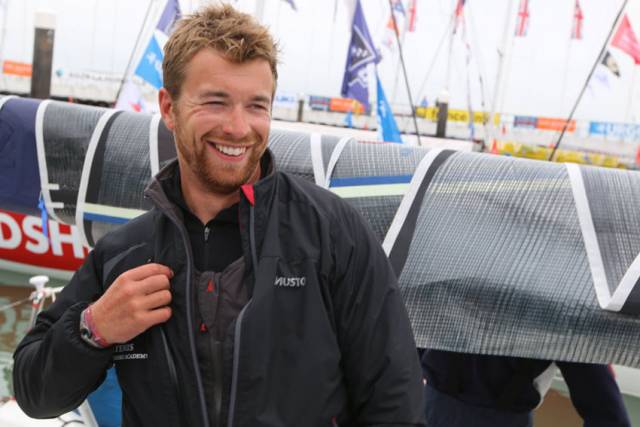In the first instalment of a three-part series, Vendée 2020 Vision solo sailor Andrew Baker explains the importance of sailing fitness - and lays out his own routine for attaining and maintaining optimum performance on deck
Fitness is not always the first thing associated with sailing – and maybe even less so in yachts when compared to the lighter Olympic classes. However, with sailing becoming increasing competitive, fitness is always an important factor. With such small margins separating the top guys from the rest of us, simply being fitter can make the difference when tiredness and fatigue starts to creep in.
Fitness tests are also becoming commonplace at many team selections, so better fitness can be something to set you apart from the influx of sailors who all want a spot on board the race teams of tomorrow.
My own reasons for fitness are aimed towards solo sailing, but with a background in Olympic classes and aspiring to a future in the bigger, more powerful yachts such as those found in the Volvo Ocean Race or the high-speed multihulls, I will try and cover all the bases.
Whatever the situation, however, cardiovascular fitness is a must. Fast boats can have you running around performing multiple fast movements, with your heart rate pushing its max during manoeuvres. The hauling of sails and stacking on board, the ever-increasing sheet loads and constant grinding – all of that lends itself to the bigger, stronger lads.
The Figaro hasn’t required the same efforts, but fitness is still key. After completing my second Figaro and now sailing on the much larger, faster IMOCA 60 yacht, I must continue to build myself for the future.
What’s My Routine?
Throughout the season my routine changes, mainly due to changing goals but also due to time constraints and available equipment.
Generally, in the off-season outside of events, I focus on getting stronger, rebuilding any lost muscle from the past season and trying to gain more. This gives a solid foundation to work on as we build up to the races, as it’s easier to boost up your fitness in a shorter time than it is to slave away in the gym to gain muscle. I also have more access to weights and equipment in the winter months, before the travelling and events make it harder to find local gyms.
Ahead of the racing season, it’s all about cardiovascular fitness and flexibility, while during the season it’s a lot more about recovery and maintaining fitness.
I should mention I am fortunate enough to be an affiliate with Chris Szedlak, the lead strength and conditioning coach at the University of Southampton. I have regular meetings and testing with Chris he monitors my progress – or sometimes lack of – so we can alter my current regimen as required.
Outside of this training, I work with physios and other trainers to address any injuries and ensure I’m fit to train – most notably Row Quinn of Row Quinn Strength and Health. Row is a lover of life and movement. I receive constant new ideas from him and ways to make my training more enjoyable. When I am home a catch-up with this guy normally involves a deep tissue massage and some playing around with a new move or some gymnastics.
Andrew Baker continues his solo sailing fitness series tomorrow with a breakdown of his training regimen - and tips for how you can make the most of your own gym sessions.






























































